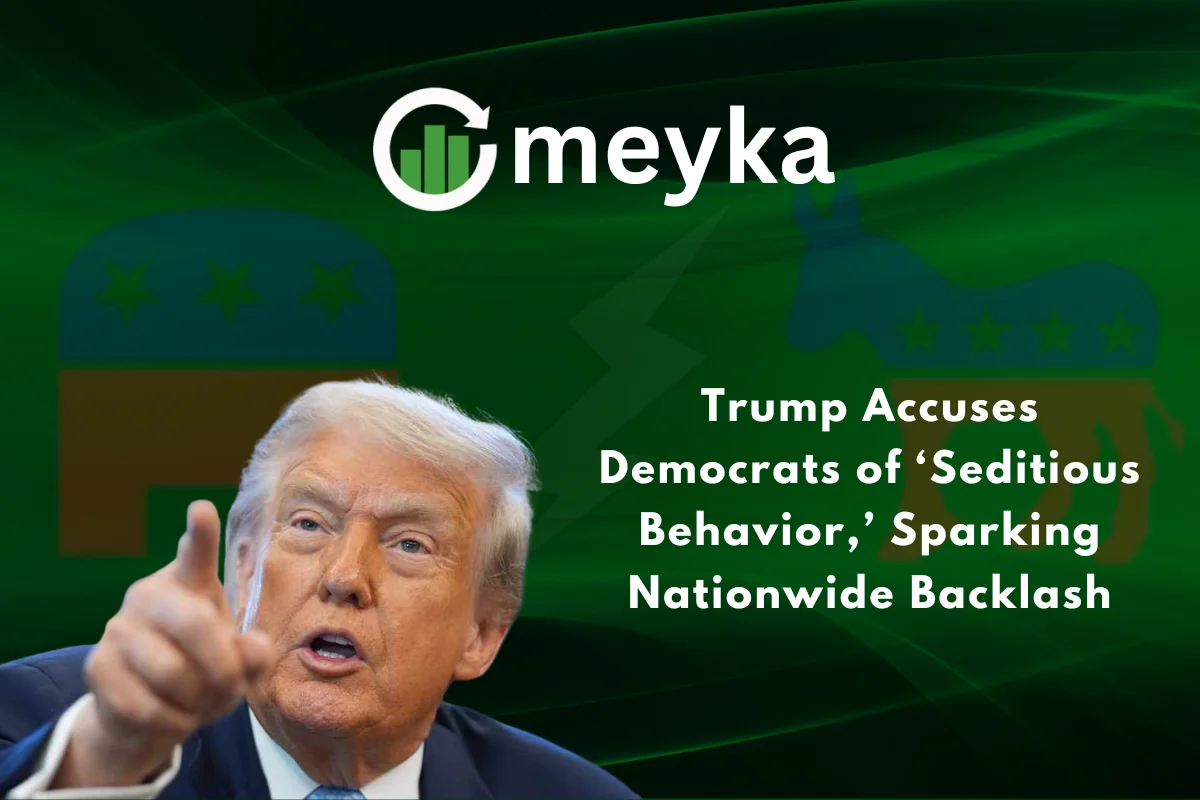Trump Accuses Democrats of ‘Seditious Behavior,’ Sparking Nationwide Backlash
Donald Trump has ignited a new firestorm of controversy after accusing six Democratic lawmakers of “seditious behavior, punishable by death” in a series of social media posts. The backlash has been swift and fierce, raising serious questions about political rhetoric, violence, and the limits of free speech.
Continue Reading on Meyka
This article is available in full on our main platform. Get access to complete analysis, stock insights, and more.
Read Full Article →





